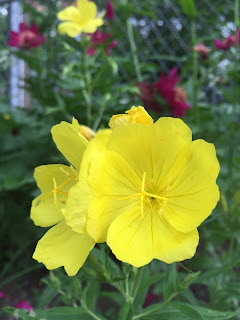Recently I read this article in School Library Journal--
Weeding Out Racism's Invisible Roots: Rethinking Children's Classics by Padma Venkatraman. There is a lot to think about in this article and a lot of actions to take once we do that thinking.
If you follow
#DisruptTexts, they've also really pushed my thinking about the books I have in my classroom, the books I read aloud, the books I recommend to students. We are so lucky to have
Tricia Ebarvia, Lorena German, Dr. Kim Parker, and Julia Torres pushing our thinking and sharing their expertise. Their mission (stated on their website) it is:
"Disrupt Texts is a crowdsourced, grass roots effort by teachers for teachers to challenge the traditional canon in order to create a more inclusive, representative, and equitable language arts curriculum that our students deserve. It is part of our mission to aid and develop teachers committed to anti-racist/anti-bias teaching pedagogy and practices."Much of the work around rethinking the canon is connected to secondary classrooms. When we think of the "canon" we think of high school English classes. But there is definitely a canon in elementary schools. There are classic books that we have deemed "must have/must read" titles for our students. There are books that are grade level reads across a school or district. There are books that as individual teachers, we have committed to reading every year in our own classrooms. We hold onto them because we say, "Every child needs to read this book because I loved it." or "Every child needs to read this book because every class I've read it to has loved it."
Much of our commitment to these classics is about nostalgia. I love T
he Secret Garden and
A Little Princess. My mother read both to me when I was in elementary school and I have great personal memories of them. I imagine during my first years of teaching I probably read them aloud to my 4th graders because I believed it was important to share books I loved so my students too could love reading. But when I revisit these books now, I realize the racist (and other) issues in both and would never read them aloud to students now. Dr. Laura Jiménez was the person who helped me understand the role of nostalgia in teacher book choice. In the article,
The Overwhelming White, Straight, and Able Face of Children's Literature (Michigan Reading Journal, Fall 2018) she says, "Literacy gatekeepers want to share their experiences with important literature with their students." She then adds, "One major issue literary gatekeepers have is the assumption that a book that was good for them is good for all readers."
I have been thinking about my own personal nostalgia since listening to what Dr. Jiménez says about nostalgia. I have also been thinking of teacher nostalgia. I realize there are several books that were staple read-alouds during my early years in the classroom. I remember reading these books aloud to children and remembering them as anchors for joy around reading. I also remember these books as being popular with students in the years I did not read them aloud.
The Indian in the Cupboard and
Touching Spirit Bear are two that stand out to me. At the time, I would have considered these fabulous choices for read aloud and independent reading. They were well reviewed by professional journals, well loved by students and really invited lots of incredible conversations. It didn't take me long to see the racism in
The Indian in the Cupboard but in all honesty, it took me a while to give up
Touching Spirit Bear. This misrepresentation in this book was less visible to me, but just as harmful.
I am thankful for Dr. Debbie Reese's blog for helping me see the things I missed.
There are so many books that we hold onto as teachers and we have to stop. I have learned to recognize and ignore my own nostalgia when choosing books to share in the classroom. I have learned that I can't let nostalgia get in the way of my professional responsibility. The nostalgia I have for certain books--either from my childhood or as a teacher -- cannot be the excuse I use to justify keeping these books in my classroom.
Dr. Seuss and
Laura Ingalls Wilder are just two authors that elementary teachers tend to hold onto. I recently read
this NPR article about the reasons classics have such staying power. One point was, "And when planning lessons from year to year, it's easier for teachers to prioritize books they're already familiar with. But when these books include offensive stereotypes, teachers have to decide whether to continue teaching them and how.
"
It's time we all take a hard look at our classroom libraries and really look at the books we have, the books we hand to children, the books we use in mini lessons, and the books we choose to read aloud. We have to ask ourselves questions like --Am I keeping this because I loved it as a child? Am I reading a book aloud because I always start the year with this one? We have to be honest with ourselves about the reasons we keep them.
And then we have to let some of our old favorites go.
We don't have to let go of the happy memories we personally have of these books, But we must look past our own nostalgia to disrupt the elementary "canon" in our schools and classrooms.
I am going to end with one more quote from Dr. Laura Jiménez, "You can hold onto the stories that build you at the very same time you are reaching for stories that will help the next generation of readers see themselves and others in this complex world."












